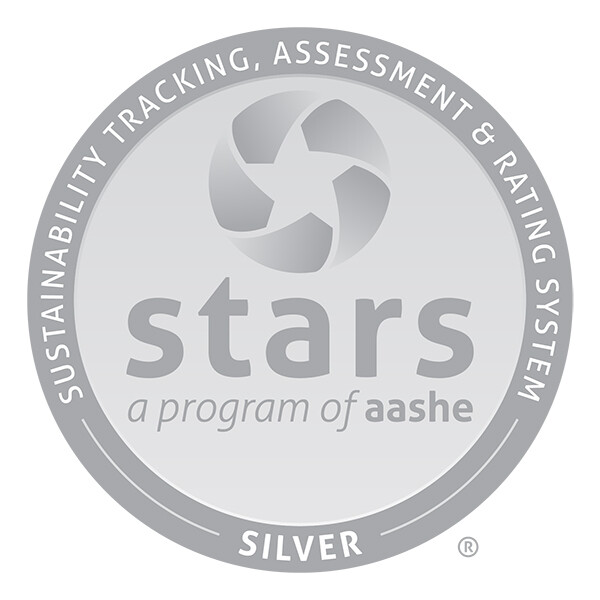
Steady progress has placed the University of Nebraska–Lincoln on the cusp of earning a gold rating for sustainability practices.
The ranking was announced through the Sustainability Tracking, Assessment and Rating System, a university- and college-centric program organized by the Association for the Advancement of Sustainability in Higher Education.

Nebraska has held a STARS program silver rating since 2016. In the 2020 report, the university finished with a score of 62.46 tabulated from reviews of four areas — academics, engagement, operations, planning and administration, and innovation and leadership. A score of 65 is necessary to obtain a gold rating.
“Our improvement in this ranking is due to a leadership team and campus community committed to making sustainability a priority,” said Prabhakar “Prabs” Shrestha, sustainability coordinator for the university. “That commitment has put the wind at our backs and allowed us to make meaningful progress.
“We are just two points from gold — a rating I’m convinced we will earn in the next STARS review.”

The 2020 STARS ranking shows the university’s sustainability strengths in engagement and planning/administration. It also reflects continued dedication to sustainability practices from operations staff, including dining, custodial and utility services.
The engagement score (which reviews programs that connect with campus and the greater Lincoln community) was 35.99 out of a maximum of 41. The tally is up from a 26 in the 2018 STARS survey. And, planning and administration increased from 12.8 in 2018 to 15.14.
Shrestha said the university’s improved score was fueled by the creation of a sustainability master plan; working directly with faculty to increase the amount of sustainability instruction that is built into course curricula; establishing and organizing related policies; and the launch of a biennial sustainability survey of students, faculty and staff contributed to the increased score.
An area targeted for improvement for the 2021 survey is continued expansion in the number of sustainability-focused courses across all colleges. For the 2020 report, the university offered 5,052 total undergraduate courses, with 130 of them being sustainability-focused. On the graduate side, the university offers 4,362 courses, with 82 sustainability-focused options.
“That continues to be an area of improvement for us as an institution,” Shrestha said. “We offered a sustainability curriculum workshop in September 2019 that led 15 faculty members to incorporate sustainability into a course.
“That helped improve our score slightly and is a program we hope to continue.”
The rating is based on a report with information from the 2019 calendar year. Innovative programs highlighted in the report include: the Centralized Renewable Energy System which uses thermal energy from a city wastewater treatment plant to provide heating and cooling for Nebraska Innovation Campus; the Chancellor’s Environment, Sustainability and Resilience Commission; and diversity, equity and inclusion initiatives, from the hiring of a vice chancellor for diversity and inclusion to launch of first-generation college student programs.
“The entire university community should be proud of this rating, but know that there is still work to be done,” Shrestha said. “The sustainability master plan will help us continue to move forward, but we also need to increase dialogue and cooperation between departments and units.
“I have no doubt we will soon earn a gold rating. And, if we are able to maintain this positive momentum, I believe that the University of Nebraska–Lincoln will be among the elite in sustainability and earn a platinum rating within the next 10 years.”
For more information on Nebraska’s sustainability efforts click here.
A summary of the university’s STARS reports is available online. The complete list of participating universities and most recent STARS rankings are also available online.







